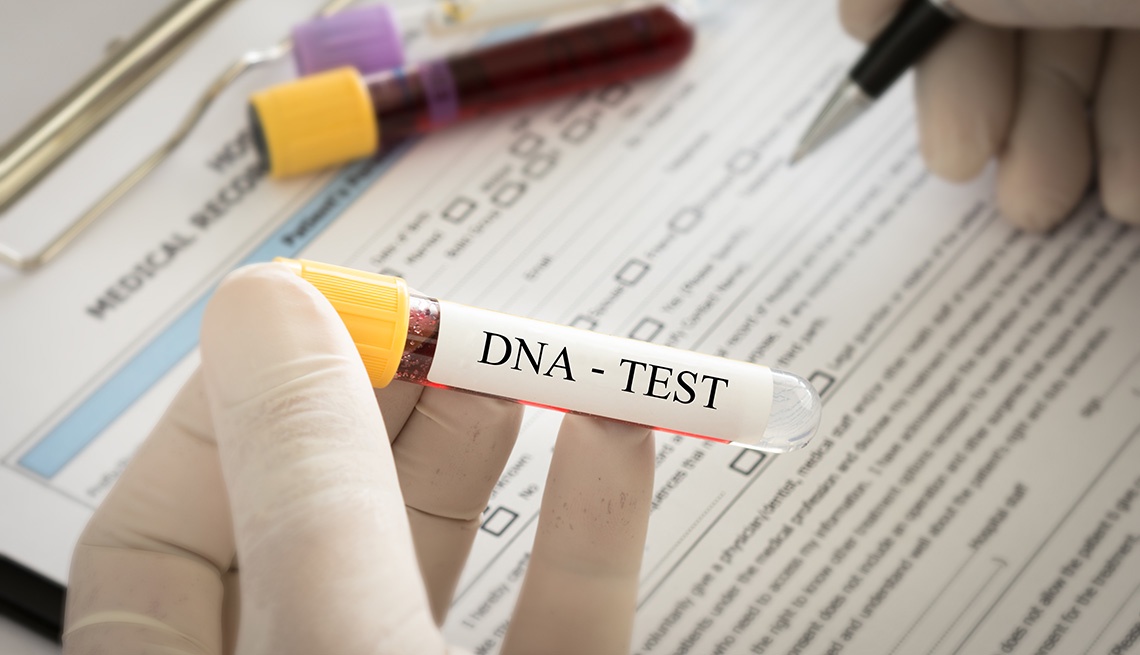What Is DNA Testing?
DNA testing, also known as genetic testing, is a process that examines an individual's DNA to provide information about their genetic makeup. DNA testing can be used to identify potential health risks, determine ancestry, and even identify unknown individuals in forensic investigations.
The process of DNA testing involves taking a sample of DNA from the individual being tested, usually through a simple swab of the cheek or a blood test. The DNA sample is then analyzed in a laboratory using various techniques to identify specific genetic markers or variations that may be associated with certain conditions or traits.
There are different types of DNA testing available, including carrier testing, predictive testing, diagnostic testing, and forensic testing. Carrier testing is used to determine whether an individual carries a genetic mutation that may be passed on to their offspring. Predictive testing is used to determine an individual's risk of developing a particular condition later in life. Diagnostic testing is used to confirm or rule out a suspected genetic condition. Forensic testing is used to identify individuals through DNA left at a crime scene or other forensic evidence.
Overall, DNA testing can provide valuable insights into an individual's health, ancestry, and genetic makeup. However, it is important to seek guidance from a healthcare professional or genetic counselor before undergoing DNA testing, as the results can have important implications for an individual's health and well-being.
Benefits of DNA Testing
There are several benefits of DNA testing, including:
-
Medical benefits: DNA testing can help identify genetic predispositions for various diseases and conditions, allowing individuals to take preventive measures or seek treatment earlier. This can lead to better health outcomes and potentially even save lives.
-
Ancestry and genealogy: DNA testing can provide insights into an individual's ancestry and genealogy. This can be particularly useful for individuals who are adopted or have limited information about their family history.
-
Paternity and family relationships: DNA testing can be used to determine paternity and other family relationships. This can be important for legal and personal reasons, such as child custody disputes or inheritance claims.
-
Personalized nutrition and fitness: DNA testing can provide insights into an individual's genetic makeup, including their metabolism and nutritional needs. This information can be used to develop personalized nutrition and fitness plans.
-
Forensic investigations: DNA testing can be used in forensic investigations to identify suspects, link crime scenes, and exonerate innocent individuals.
Overall, DNA testing can provide valuable information for personal, medical, and legal purposes. However, it is important to weigh the potential benefits and risks before undergoing DNA testing and to seek guidance from a healthcare professional or genetic counselor.

Types of DNA Testing Available
There are several types of DNA testing available, including:
-
Carrier testing: This type of testing is used to determine whether an individual carries a genetic mutation that could be passed on to their offspring. This is typically done when an individual has a family history of a particular genetic disorder.
-
Predictive testing: This type of testing is used to determine an individual's risk of developing a particular condition later in life. This is often done when there is a family history of a particular disease or when an individual has specific symptoms or risk factors.
-
Diagnostic testing: This type of testing is used to confirm or rule out a suspected genetic condition. This is typically done when an individual has specific symptoms or when there is a family history of a particular disorder.
-
Pharmacogenomics testing: This type of testing is used to determine an individual's response to certain medications. This can be particularly useful for individuals who have had adverse reactions to medications in the past.
-
Ancestry testing: This type of testing is used to determine an individual's ancestry and ethnic background. This is often done for personal interest or to fill in gaps in one's family history.
-
Paternity testing Australia: This type of testing is used to determine paternity or other family relationships. This is typically done for legal and personal reasons, such as child custody disputes or inheritance claims.
-
Forensic testing: This type of testing is used in forensic investigations to identify suspects, link crime scenes, and exonerate innocent individuals.
Overall, the type of DNA testing used will depend on the specific reasons for the testing and the information that is being sought. It is important to consult with a healthcare professional or genetic counselor to determine the appropriate type of testing for each individual case.


No comments yet